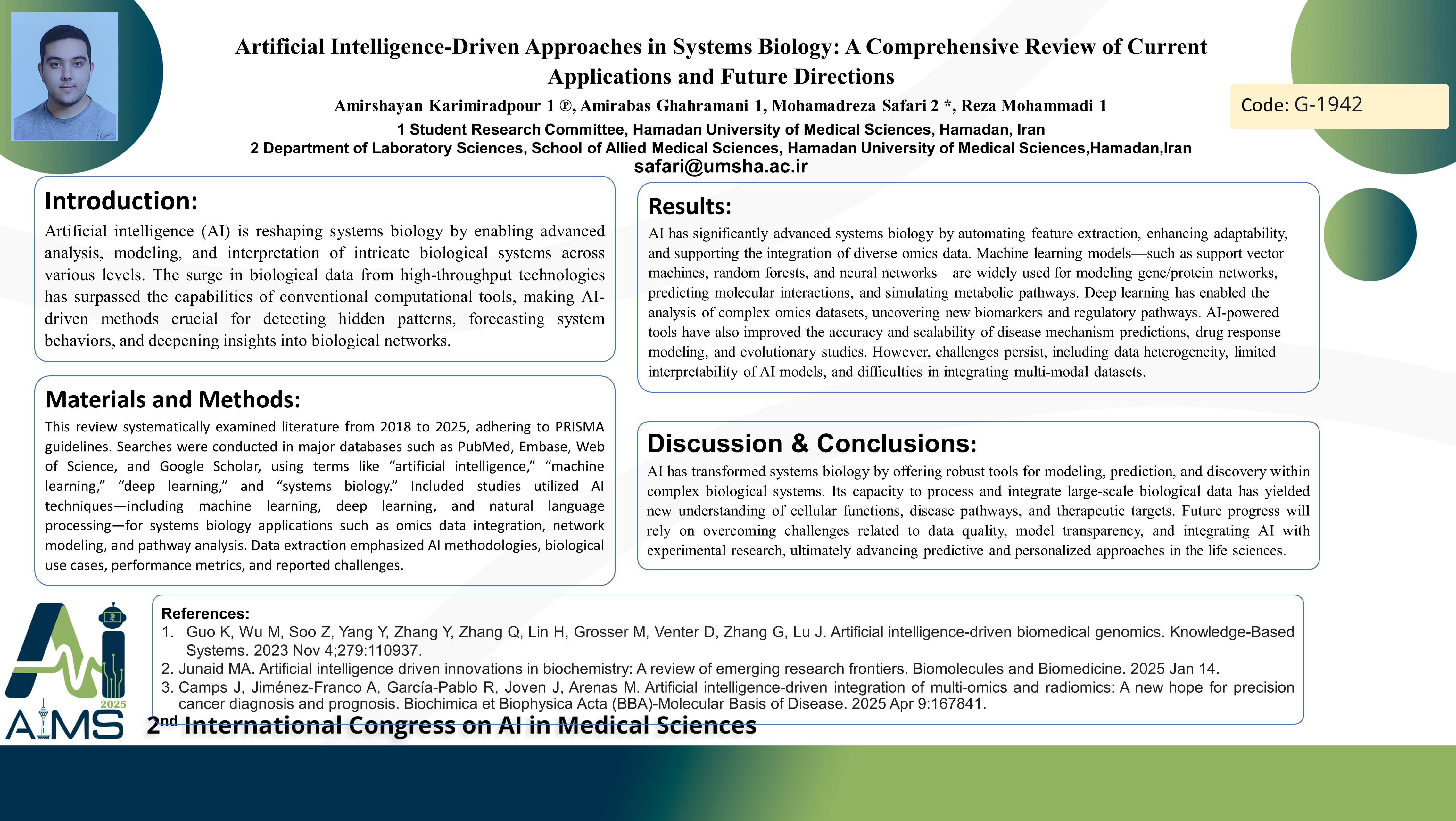رویکردهای مبتنی بر هوش مصنوعی در زیست شناسی سیستم ها: مروری جامع بر کاربردهای فعلی و جهت گیری های آینده
کد: G-1942
نویسندگان: Amir Shayan Karimiradpour ℗, Amirabas Ghahramani , Mohamadreza Safari *, Reza Mohammadi
زمان بندی: زمان بندی نشده!
برچسب: تشخیص و درمان سرطان
دانلود: دانلود پوستر
خلاصه مقاله:
خلاصه مقاله
Introduction: Artificial intelligence (AI) is reshaping systems biology by enabling advanced analysis, modeling, and interpretation of intricate biological systems across various levels. The surge in biological data from high-throughput technologies has surpassed the capabilities of conventional computational tools, making AI-driven methods crucial for detecting hidden patterns, forecasting system behaviors, and deepening insights into biological networks. Methods: This review systematically examined literature from 2018 to 2025, adhering to PRISMA guidelines. Searches were conducted in major databases such as PubMed, Embase, Web of Science, and Google Scholar, using terms like “artificial intelligence,” “machine learning,” “deep learning,” and “systems biology.” Included studies utilized AI techniques—including machine learning, deep learning, and natural language processing—for systems biology applications such as omics data integration, network modeling, and pathway analysis. Data extraction emphasized AI methodologies, biological use cases, performance metrics, and reported challenges. Results: AI has significantly advanced systems biology by automating feature extraction, enhancing adaptability, and supporting the integration of diverse omics data. Machine learning models—such as support vector machines, random forests, and neural networks—are widely used for modeling gene/protein networks, predicting molecular interactions, and simulating metabolic pathways. Deep learning has enabled the analysis of complex omics datasets, uncovering new biomarkers and regulatory pathways. AI-powered tools have also improved the accuracy and scalability of disease mechanism predictions, drug response modeling, and evolutionary studies. However, challenges persist, including data heterogeneity, limited interpretability of AI models, and difficulties in integrating multi-modal datasets. Conclusion: AI has transformed systems biology by offering robust tools for modeling, prediction, and discovery within complex biological systems. Its capacity to process and integrate large-scale biological data has yielded new understanding of cellular functions, disease pathways, and therapeutic targets. Future progress will rely on overcoming challenges related to data quality, model transparency, and integrating AI with experimental research, ultimately advancing predictive and personalized approaches in the life sciences.
کلمات کلیدی
Artificial Intelligence, Machine Learning, Systems Biology
